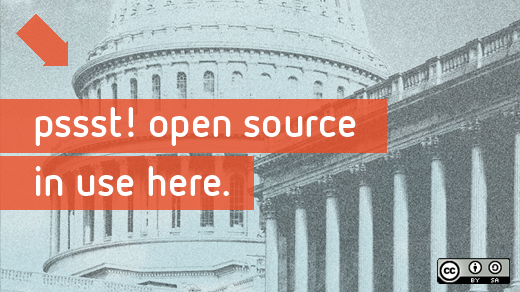This week, Code for America is thrilled to announce new partnerships with seven local governments for the 2015 Code for America Fellowship Program. The official announcement was shared with more than 750 attendees at the annual Code for America Summit on September 23, and in this press release.
The governments are:
- Albuquerque, New Mexico
- Indianapolis, Indiana
- Miami-Dade County, Florida
- Pittsburgh, Pennsylvania
- Somerville, Massachusetts
- Vallejo, California
- West Sacramento, California
In November, we’ll announce the 2015 Fellows.
Getting to today
I’m particularly excited to share this news as I’ve seen the hard work and dedication that our city and county partners have put in to make this happen. Each of these have made incredible commitments to applying modern technology approaches and tools to meeting the needs of their communities. It’s been a nine month journey—having started our conversations in January. Between those early conversations and mid-March, when applications were due, these seven partners gained buy-in from their leadership and peers, secured nearly $220,000 in government funding, and worked diligently to confirm match funding and community investment from local philanthropic or corporate partners.
Now, that work is official!
Earlier this morning, our partners, and close to 30 members of their staff, came together to begin preparing for the 2015 Fellowship. During that time, the partners discussed the outcomes of their projects and participated in a goal setting exercise. They learned about user-centered design from UX Evangelist Cyd Harrell and lean, iterative approaches to building technology from CTO Mike Migurski.
About the Fellowship
Fellows and cities are invested in a partnership that explores answers to local challenges by engaging the community, building applications, and testing the results. Over the past four years, the Fellowship program has produced more than 55 web apps with 30 municipal governments and 103 Fellows.
The applications are tangible results of a process that builds much more than a piece of technology.
The Fellowship program strengthens key capabilities within local government and communities by working in an iterative, user-centered, data-driven approach. Beyond the year of the Fellowship, we see city staff continuing to design services for and with the community, make data meaningful, and make better technology choices. Often the key takeaway for a Fellowship experience is shifting the way cities think about, and use, technology to deliver public services.
Over the last four years, Code for America Fellows, in partnership with cities, have developed a growing portfolio of products, tools, and standards. In 2014, Code for America began a pilot program to deepen and integrate health-related projects. This year the governments selected for the 2015 Fellowship will build on prior learnings in health, economic development, procurement, public safety, and justice.
A unique class
This years class of partners stands out for myriad reasons in my mind. First and foremost, we have an incredible mixture of large, mid, and smaller cities. Oftentimes, when we first engage in conversation with a new government, they have the perception that the Fellowship is only geared for large cities like Boston and San Francisco. That’s not at all the case. This year’s cohort of government partners reinforces the fact that the Fellowship, or any innovative project for that matter, is about aligning efforts around community priorities.
Some of the unique attributes of this year’s class include:
- Two of our seven government partners are from cities with populations slightly above, or less, than 100,000 residents. One of the government partners has a population of nearly 50,000.
- Indianapolis, the 13th largest city in the U.S., had a violent crime rate in 2012 that was nearly 3x the national average. The project will focus on public safety.
- Similarly, Vallejo, a city that has one of, if not the lowest police-to-citizen ratios in the U.S., will also engage the Fellows in a project aimed at increasing citizen engagement in public safety.
- Our Fellows will take on economic development projects in two incredibly different communities. One in Albuquerque, where nearly 30% of the workforce is employed by government, and a second, in Miami-Dade, which a Kauffman Foundation study ranked #1 in the U.S. in terms of entrepreneurial activity on a per capita basis.
- We’ll explore with West Sacramento what happens when you engage underrepresented populations in a project that tackles health and food access, not just in one city, but the region.
- In Pittsburgh, a city that has been lauded for its transparency efforts, the Fellowship will take on procurement.
- And, in Somerville, our Fellows will partner with a Mayor and team truly committed to data-driven decision making to explore how data from various sources can be used to make real-time decisions to help support the education and health of school aged children.
- Similarly, Vallejo, a city that has one of, if not the lowest police-to-citizen ratios in the U.S., will also engage the Fellows in a project aimed at increasing citizen engagement in public safety.
- Our Fellows will take on economic development projects in two incredibly different communities. One in Albuquerque, where nearly 30% of the workforce is employed by government, and a second, in Miami-Dade, which a Kauffman Foundation study ranked #1 in the U.S. in terms of entrepreneurial activity on a per capita basis.
- We’ll explore with West Sacramento what happens when you engage underrepresented populations in a project that tackles health and food access, not just in one city, but the region.
- In Pittsburgh, a city that has been lauded for its transparency efforts, the Fellowship will take on procurement.
- And, in Somerville, our Fellows will partner with a Mayor and team truly committed to data-driven decision making to explore how data from various sources can be used to make real-time decisions to help support the education and health of school aged children.
We look forward to a great 2015 partnership ahead!
Local governments interested in the 2016 Fellowship, it’s never too early to start the process. Contact Luke Norris, Director of Government Relations at Luke@CodeforAmerica.org. For more information, see the official Code for America press release including quotes from the Mayors.
Originally posted on the Code for America blog. Reposted via Creative Commons.







2 Comments